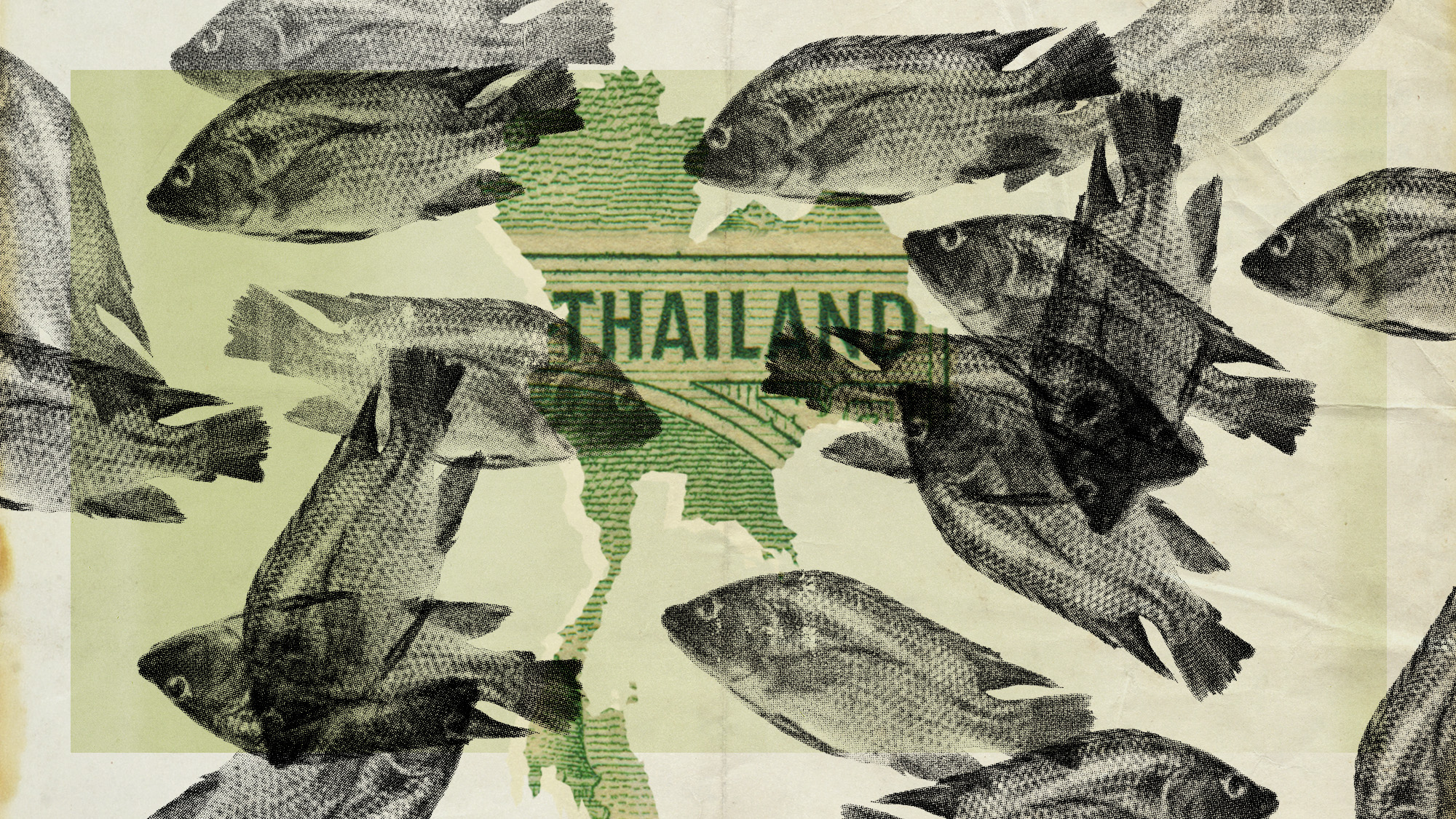Thailand's war on blackchin tilapia
The invasive 'alien' fish are causing economic damage but can their spread be stopped?

A free daily email with the biggest news stories of the day – and the best features from TheWeek.com
You are now subscribed
Your newsletter sign-up was successful
Over the years, Thailand has fought battles against Japan, Vietnam and Cambodia but it's now at war with a different foe: an "alien" fish with a black chin and a prolific reproduction rate.
Politicians believe that the latest outbreak, of blackchin tilapia, will cost the Thai economy at least 10 billion baht (£223m), so the authorities have gone to war on three fronts against the "invasive" fish.
'Suffering and misinformation'
The blackchin tilapia, native to Africa, has spread to waters in at least 13 Thai provinces, threatening local aquaculture and biodiversity as it preys on smaller fish and shellfish. But how did this West African fish "end up causing havoc half a world away", asked the BBC.
The Week
Escape your echo chamber. Get the facts behind the news, plus analysis from multiple perspectives.

Sign up for The Week's Free Newsletters
From our morning news briefing to a weekly Good News Newsletter, get the best of The Week delivered directly to your inbox.
From our morning news briefing to a weekly Good News Newsletter, get the best of The Week delivered directly to your inbox.
Politicians investigating the fish's presence have explored a theory that an experiment by a food giant 14 years ago was to blame. Charoen Pokphand Food (CPF), which runs shrimp and livestock farms, imported 2,000 of the fish from Ghana in late 2010.
CPF insisted that all the fish died and were buried properly but outbreaks of blackchin tilapia were reported in Thailand, including in the area of a CPF laboratory, according to local media.
The company has strongly rejected the allegations as "misinformation" and said that although it is "confident that it is not the cause of the outbreak", it is "ready to cooperate with the government to alleviate the suffering of the people".
A government minister said it's possible that the invasive fish species could have been smuggled into Thailand. "In the end, though, how they came to be in Thai waterways is the past", said the BBC. Now "the problem is the future", and "getting the outbreak under control".
A free daily email with the biggest news stories of the day – and the best features from TheWeek.com
'Knee-deep wading'
It is a species which "reproduces at speed", said the broadcaster – females can produce 500 fingerlings at a time. Many experts already fear that eradicating the blackchin tilapia "may be impossible". So the focus should now be on "mitigating its impact" and "preventing further damage to the ecosystem", said Malay Mail.
To that end, Thailand's Prime Minister, Srettha Thavisin, has approved a plan to turn the fish into fertiliser, with the government offering cash payments for every kilo of blackchin tilapia caught in Thai waters.
Since the government doubled the amount that it will pay people who catch the fish, to 15 baht (33p) per kilo, crowds in Bangkok's suburbs have "waded in knee-deep waters" hoping to catch blackchin tilapia "with their plastic basins", said the BBC.
Authorities have released the blackchin tilapia's predators – Asian seabass and long-whiskered catfish – to "hunt them down". Agencies are also producing genetically modified blackchin tilapia that would produce sterile offspring on the theory that this might stop their population from exploding further. They hope to release the sterile fish within months.
But "who will win?" wondered Bangkok MP Nattacha Boonchaiinsawat during an interview with the BBC. Calling on the Thai government to do more, he said "we need the people to follow the case closely, otherwise this matter will be quiet", and "we will pass on this kind of environment to the next generation".
Chas Newkey-Burden has been part of The Week Digital team for more than a decade and a journalist for 25 years, starting out on the irreverent football weekly 90 Minutes, before moving to lifestyle magazines Loaded and Attitude. He was a columnist for The Big Issue and landed a world exclusive with David Beckham that became the weekly magazine’s bestselling issue. He now writes regularly for The Guardian, The Telegraph, The Independent, Metro, FourFourTwo and the i new site. He is also the author of a number of non-fiction books.
-
 How the FCC’s ‘equal time’ rule works
How the FCC’s ‘equal time’ rule worksIn the Spotlight The law is at the heart of the Colbert-CBS conflict
-
 What is the endgame in the DHS shutdown?
What is the endgame in the DHS shutdown?Today’s Big Question Democrats want to rein in ICE’s immigration crackdown
-
 ‘Poor time management isn’t just an inconvenience’
‘Poor time management isn’t just an inconvenience’Instant Opinion Opinion, comment and editorials of the day